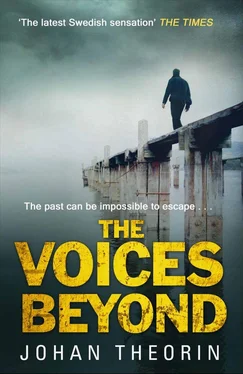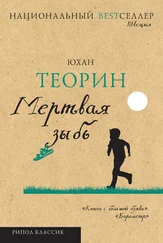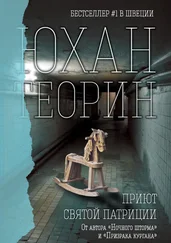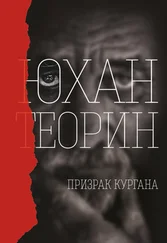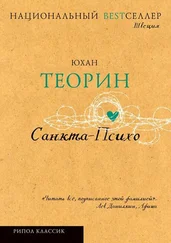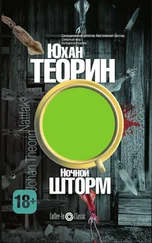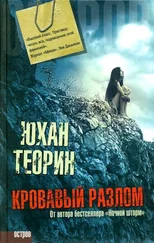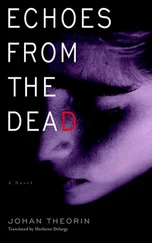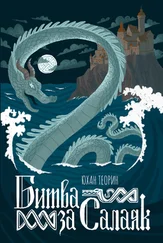Late at night, Aron occasionally hears knocking in the darkness of the cellar, a protracted, quiet tapping. It unsettles him, but every time he approaches the rhythmic sounds they stop.
‘It’s a kind of language,’ Trushkin explains.
‘A language?’
‘The prisoners are talking to one another from cell to cell, tapping out a code on the wall.’
‘Oh?’
‘We try to stop them,’ Trushkin says, ‘but they just carry on knocking.’
Aron relaxes slightly. It is people who are knocking.
The prisoners are processed as if they are on a conveyor belt; everything is organized to be as quick and easy as possible.
All prisoners are examined, stripped naked, their bodily orifices are searched, then they are immediately taken down to the cellar, shaking and terrified. Vlad stands there in his uniform, his black boots firmly planted on the cement floor, and Aron hears him ask the same questions over and over again:
‘Why have you been slandering the Party?’
‘Why did you sabotage the machinery?’
‘What are the names of the agents you recruited?’
When Vlad’s voice begins to grow hoarse, one of his colleagues takes over.
Comrade Trushkin never tires as an interrogator, no matter how long his shift, and Vlad regards him as a role model. Trushkin hurls himself at every prisoner, spitting out question after question:
‘Why did you join the Trotskyites?’
‘Why do you want to leave your homeland?’
‘Why didn’t you think about your children?’
Sometimes, other prisoners are brought in, those who are already broken, to help persuade intractable saboteurs to admit to the crimes of which they are accused.
Sometimes, prisoners who suffer from claustrophobia are locked up in particularly confined spaces, where the walls and ceiling seem to close in around them. Shivering prisoners are put in ice-cold cells; those with a fever are sluiced down with cold water. Torture is an approved interrogation method, and a dubinka , a rubber baton, is used on their backs and the soles of their feet.
There are many methods, but the goal is always the same: to obtain a written confession, the scribbled signature at the bottom of the notes taken during the interrogation, scrawled in ink which is often mixed with drops of blood.
The confession provides proof that the interrogation has gone well. Proof that the enemy is guilty.
Vlad writes down all the names they gabble. Names, titles, crimes.
Then the notes are read and signed by the criminal.
And after that: Vysshaia mera . The ultimate punishment under the law.
The bullet.
The death chamber in the cellar is also used as a barbershop. When the prisoners are led in, they never know what is coming, because the prison authorities have decided that the executioners and the barbers should wear the same uniform.
The door has extra soundproofing and is firmly closed. A gramophone in one corner plays energetic marching music at full volume. The back wall is white and looks harmless, but in fact it is a sheet of plasterboard with timber and a thick layer of sand behind it to catch the bullets.
The prisoners’ fate becomes apparent only when they are forced to stand in a white square on the cement floor, facing the wall, but by then it is too late. Four or five seconds of stillness as the music plays, then the executioner steps forward and fires.
And the gramophone keeps on playing.
Captain Rugajev often selects Vlad to serve in the death chamber, and Aron knows why: his aim is perfect. Many of the guards are less than adept with a pistol and have to use two bullets, sometimes even three. But Vlad takes careful aim.
If it is not possible to shoot a prisoner — perhaps because the body will have to be shown to some foreign diplomat afterwards — then a chloroform mask is placed over the face, and a doctor administers a fatal injection so that the death looks like the result of a sudden heart attack.
After a long shift, the floor must always be washed. Some of the cleaners cannot be trusted, so occasionally a prisoner is given the job, but often the guards have to do it themselves.
One evening, Trushkin and Vlad are working together in the cellar, with a stiff brush and a hosepipe.
‘Do you know what we are, Comrade?’ Trushkin asks as he sluices down the walls. ‘It’s just come to me.’
‘No,’ Vlad says. ‘What are we?’
‘We are like a small part of a combine harvester,’ Trushkin says. ‘Do you know what that is?’
Vlad shakes his head.
‘It’s a fantastic machine. They’ve started appearing on the kolkhozy instead of sickles and scythes. I saw one trundling along outside Moscow last year.’
‘What does it do?’
‘Everything! It’s a single machine that does everything in the fields — the work that one or two hundred farmers would have done. And, of course, it never gets tired!’
Aron pictures a human monster striding across a field, so he asks, ‘What’s it made of?’
‘Iron bars, metal drums and rotating cogs and wheels.’
‘And a scythe?’
‘Knives,’ Trushkin explains. ‘Long rows of knives, so the crop is cut down and fed into the thresher, where the grain is separated from the chaff. Then all you have to do is start baking bread... And when I saw it rolling along, I thought that our organization is like a combine harvester, driven by Comrade Stalin.’ He rinses away the last traces of blood from the corner of the cellar. ‘You and I are the knives.’
Aron brushes the water away. A combine harvester? But it is not enough to thresh the grain, it must also be crushed in order to obtain flour.
Trushkin never tires of the threshing process in the cellar, but after a long, hard summer, at the end of July 1938 he is sent away on a well-earned holiday by the Black Sea. Vlad continues the nightshifts without him.
‘What state are you spying for?’ he asks.
‘What is your codename?’
‘Who recruited you?’
There seems to be no end to the interrogations, or the paperwork.
Aron’s only consolation is that the struggle cannot continue for ever. Peace must surely come soon, and the croft on the island across the Baltic Sea will still be there, waiting for him. The croft and the shore, his sister and his mother. He will go home, when the last enemy is gone.
But they keep on coming. On the night of 4 August 1938, a prisoner is brought down to the cellar with a bag over his head and a coat draped around his shoulders. The bag is nothing new as far as Vlad is concerned; it happens often in the summer when the nights are light and the transportation of enemies has to be carried out more openly.
Otherwise, this prisoner looks like all the rest. He is wearing stained underclothes beneath the coat and his legs are covered in cuts and bruises.
‘Number 3498,’ the clerk says, inserting a new sheet of paper in his typewriter.
Vlad is ready. Three buckets of ice-cold water are standing by the wall and the dubinka is lying on the table. He quickly pulls the bag off the prisoner’s head — and stands there holding it in his hand.
It is Trushkin.
Comrade Trushkin, Aron’s friend, is sitting on the chair in front of him.
Trushkin doesn’t say a word; his lips are cracked, but he looks at Vlad. He is staring straight into Aron.
Aron turns to his colleague. ‘I don’t understand,’ he says.
‘What don’t you understand?’
Aron looks back at Trushkin. ‘I don’t understand why he has been brought here. Why we have to...’
The clerk picks up a document and reads, ‘Prisoner 3498 has been in contact with the relatives of enemies of the people. He has sent letters to them.’
Читать дальше
